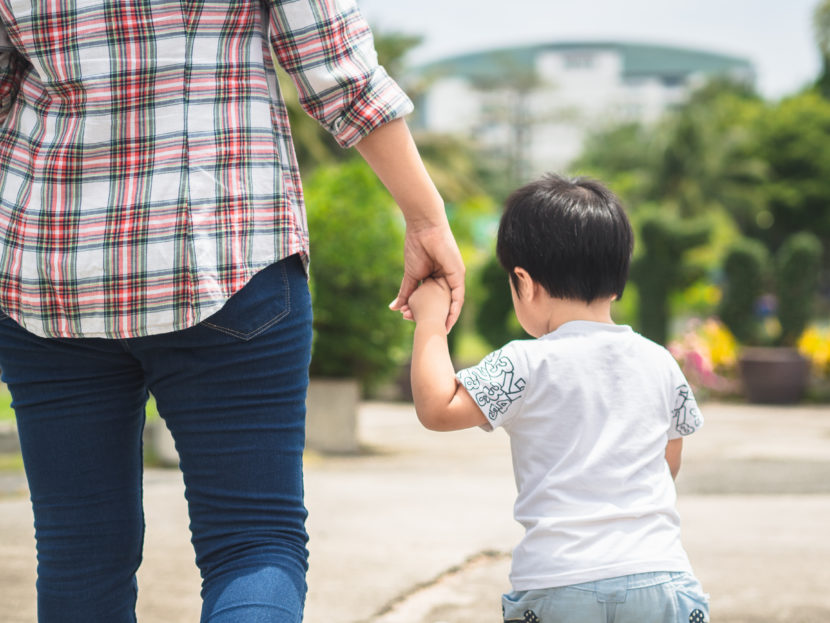Japan is one of the only countries in the world that protects and maintains a sole custody system (Cosier & Grant, 2022). As a result, national laws in the East Asian country fail to comprehensively protect the rights of both parents through divorce and marital separation. In the wake of increasing cross-cultural and cross-national marriages and despite scrutiny from the international legal community, non-custodial parents are facing the traumatic reality of complete isolation from their children’s lives following divorce.
The changing parental landscape in Japan
A large number of the challenges Japan has faced in relation to its divorce laws have been heightened by an increase in cross-national marriages (Hamano, 2017). In particular, and since the early 2000s, Japan has seen a demonstrable increase in the marrying of Japanese women to non-Japanese men (Hamana, 2017).
In parallel, Japan’s Ministry of Health, Labor and Welfare has observed an increased prevalence of divorce among cross-national couples, likely tied to greater differences in culture, background and inadequate support systems (Hamano, 2017). Ten years ago, nearly 10% of all registered divorces in the country involved cross-national marriages and this number has risen since (Hamano, 2017).
Divorces between cross-national couples carry extra complexities. Separation between these parents can transcend national boundaries, engaging multiple legal systems and obscuring the hierarchy of the law. Japanese courts tend to favour the interests of the parent with custody of the child in Japan, even permitting that parent to leave the country with their child without the consent or knowledge of the second parent (Foreign and Commonwealth Office, 2021).
Sole parental responsibility
Japan does not subscribe to the principles of joint custody or shared parental responsibility (Hurights Osaka, 2022). In marriage, both parents hold custodial rights toward their children unless a court order is issued (Foreign and Commonwealth Office, 2021). This custody can be broken down into ‘legal’ and ‘physical’ categories, although it is rare for these rights to be annexed and awarded to two separate parents (Foreign and Commonwealth Office, 2021). However, where marriages and parental relationships break down, Japan’s laws are restrictive.
Following a divorce, and irrespective of nationality, only one parent is awarded custody of a Japanese child unless parents agree to joint custody away from the courts (Hurights Osaka, 2022). There is also no obligation for judges to accept or consider foreign court orders in their deliberation (Foreign and Commonwealth Office, 2021).
The decision-making process that determines which parent has custody is thus a critical part of a child’s registration following divorce. Existing laws provide wide discretion for judges to award custody to a particular parent, as well as to rule over visitation rights and broader interactions between parent and child (Hurights Osaka, 2022).

This places non-custodial parents at the mercy of the custodial parent and the legal system. In extreme cases, non-custodial parents are unable to see their children under any circumstances or receive photos of their growth (Hurights Osaka, 2022). Further, once separated, non-custodial parents surrender their rights to make any decision over their child’s schooling or healthcare (Hurights Osaka, 2022). A 2021 government survey stated that over 200,000 children are affected by divorce each year in Japan, with nearly a third of those eventually losing all contact with their non-custodial parent (Katanuma, 2023).
Restrictions on non-custodial parents
The principle underpinning judicial discretion in divorce cases is ‘continuity’: judges are encouraged to prioritize stability, the de-facto primary carer, and the child’s settled status in one household (Hurights Osaka, 2022). The parent who was with the child at the time of separation is typically favored and awarded authority over visitation rights and other decisions related to the non-custodial parent’s access to the child (Cosier & Grant, 2022). A knock-on effect of favoring continuity over change is that courts usually provide custody to the ‘parent that has taken care of the child most recently’ (Bagshaw, 2021).
It is often theorized that this system responds to widespread domestic violence perpetrated by men against their wives (Bagshaw, 2021). Women are predominantly the primary child carers in Japan, and the current framing of the law allows mothers who have been victims of domestic violence to maintain custody of their children without needing to interact with their abusers. Allegations of domestic violence have risen by 500% since 2001 and women account for 75% of reported victims (Katanuma, 2023).
Sole custody principles also prevent single parents from over-reliance on potentially abusive partners for the financial and material well-being of their children. However, the law also inadvertently creates the possibility that custodial parents can impose excessive restrictions on non-custodial parents following the breakdown of a relationship.
The Hague Convention and International Law
The Hague Convention on the Civil Aspects of International Child Abduction 1980 is a multilateral treaty designed to protect children from wrongful removal and retention across international boundaries (Hague Conference on Private International Law, 2023).
Under its provisions, signatory states are obliged to ‘ensure the opportunity for parent-child visitations or contact’ (Ministry of Foreign Affairs of Japan, 2022). This requirement further prescribes that countries should support the realization of child access for parents and children where they are separated by geography to protect the best interests of the child (Ministry of Foreign Affairs of Japan, 2022).
Japan ratified the Hague Convention in 2014 (Hamano, 2014). Despite ratification, the country is yet to make radical changes to its laws to ensure full implementation. Japan has primarily rebutted calls for dramatic amendments to its position on joint custody by stressing the importance of the Koseki system: Japan’s framework for registering families in the country which has been in place for hundreds of years (Hamano, 2017).
This fact, combined with the Hague Convention’s limited applicability to children under the age of 16, means current parents experiencing challenges related to sole custody are in a race against time (Bagshaw, 2021).
Child abduction as recognized by Japanese laws
Beyond the challenges birthed by the solo-custody system itself, Japanese laws relating to child kidnapping re-enforce the minimization of non-custodial parental rights. Child abduction is criminalized by Article 224 of the Japanese Penal Code, and this position applies equally to all potential offenders including parents of their own children (Hurights Osaka, 2022). Child abduction laws are thus weaponized as a tool to maintain separation between non-custodial parents and their children.
In 2005, Japan’s Supreme Court ruled that the kidnapping of a child cannot be justified by the presence of parental authority, ruling that a father was not entitled to take his two-year-old child away from their mother (Hurights Osaka, 2022). In 2019, Japan sentenced an Australian man to seven weeks in detention after he attempted to check on the wellbeing of his children who had been taken by his Japanese wife without joint consent (Hurights Osaka, 2022). There are further demonstrable instances in which parents’ official complaints of child abuse and abduction have been ignored by Japanese institutions.
Scrutiny from the international legal community
The case of Vincent Fichot brought this unyielding practice to the international forefront. As a married father, he saw his child abduction complaints ignored for four years after his wife had taken their children and was threatened with prosecution under child abduction laws if he attempted to recover his children from his wife despite holding full parental authority (Hurights Osaka, 2022).
Vincent was eventually able to obtain an arrest warrant with the support of INTERPOL given his children’s dual nationality (Hurights Osaka, 2022). Japanese authorities responded to this incident by upscaling the monitoring of child abduction complaints and raising awareness of these issues among law enforcement actors (Hurights Osaka, 2022).
Japanese courts also have discretion over non-custodial parents’ contact rights despite court orders from other jurisdictions (Foreign and Commonwealth Office, 2021). The challenges and dangers of this system are self-evident and have raised international concern. The Australian government has provided assistance to over 80 children tied to child custody cases in Japan since 2004 (Cosier & Grant, 2022).
In 2019, the respective national leaders of Germany, France and Italy condemned Japan for its current position (Yakimova, 2020). In the same year, the United Nations Human Rights Council launched a formal complaint accusing Japan of violating international laws: The United Nations Convention on the Rights of the Child (UNCRC) and the Hague Convention (Yakimova, 2020).
Ways forward to protect children’s and parents’ rights in Japan
As Japan grapples with fundamental questions over the impacts of its custody laws and policies the country must continue to prioritize the best interests of the child. In particular, efforts must be made to:
- Enforce international provisions and comply with the implementation requirements of the Hague Convention (Yakimova, 2020);
- Prioritize the best interests of the child in accordance with the United Nations Convention on the Rights of the Child to ensure, where appropriate, all efforts are made to maintain the crucial relationship between a child and their parent (Yakimova, 2020);
- Build cross-border and transnational systems into child protection frameworks to ensure foreign jurisdictions have information on the working of Japan’s child protection systems, and parents have avenues to initiate and maintain cross-border disputes (Yakimova, 2020);
- Ensure dual nationality provisions do not hamper children’s access to their parents. Children in Japan must choose one nationality before the age of 22, this decision should not hamper their access to either of their parents (Foreign and Commonwealth Office of Australia, 2021);
- Leverage the support of embassies and non-governmental organizations to ensure abducted children and left-behind parents are not ignored (Foreign and Commonwealth Office of Australia, 2021);
- Utilize innovative and emerging technologies to better support children to reconnect with their parents. Find My Parent (FMP) is an example of an ongoing effort to use mobile platforms to help parents reconnect with their lost children (Foreign and Commonwealth Office of Australia, 2021);
- Enhance child welfare awareness to ensure children who are separated from either of their parents receive support to cope with the trauma of divorce and a space to express their concerns (Foreign and Commonwealth Office of Australia, 2021).

Humanium remains committed to safeguarding children’s rights, including their rights to family, protection and freedom. Humanium believes in empowering children in realizing their rights. If you wish to contribute to Humanium’s case, please consider volunteering, becoming a member or making a donation.
Written by Vanessa Cezarita Cordeiro
References:
Bagshaw, E. (2021, August 14). “Their children were taken. Now they fight Japanese laws to get them back.” Retrieved from The Sydney Morning Herald, accessed on 22 May 2023.
Cosier, C. & Grant, K. (2022, October 11). “Whoever abducts first wins: Why Japan won’t allow this Australian mother to see her children.” Retrieved from SBS Dateline News Australia, accessed on 19 May 2023.
Foreign and Commonwealth Office. (2021, March 19). “Guidance information on child abduction in Japan.” Retrieved from Foreign and Commonwealth Office, accessed on 20 May 2023.
Hague Conference on Private International Law. (n.d). “Child abduction section.” Retrieved from HCCH, accessed on 20 May 2023.
Hamano, T. (2017). “The aftermath of Japan’s ratification of the Hague Convention on Child Abduction: an investigation into the state apparatus of the modern Japanese family.” Retrieved from IAFOR Journal of Asian Studies, accessed on 19 May 2023.
Hurights Osaka. (2022, June). “Black hole of the child abduction.” Retrieved from Asia-Pacific Human Rights Information Centre, accessed 22 May 2023.
Katanuma, M. (2023, January 25). “Japan tries to fix a child custody system under fire from all sides”. Retrieved from The Japan Times, accessed 15 May 2023.
Ministry of Foreign Affairs of Japan. (2022, November 22). “Overview of the Hague Convention and related Japanese legal systems.” Retrieved from Ministry of Foreign Affairs of Japan, accessed on 19 May 2023.
Official Journal of the European Union. (2019, June 25). “Council regulation (EU) 2019/1111 of 25 June 2019 on jurisdiction, the recognition and enforcement of decisions in matrimonial matters and the matters of parental responsibility, and on international child abduction.” Retrieved from Official Journal of the European Union, accessed on 22 May 2023.
Yakimova, Y. (2020, July 8). “Parliament sounds alarm over children in Japan taken from EU parents.” Retrieved from European Parliament News, accessed on 12 May 2023.


